Food and Drink: Special Occasion Foods
National and Public Holidays
Christmas
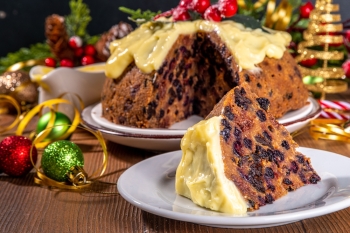
Christmas in the United Kingdom is a time of family gatherings and festive meals. The main meal, typically served on Christmas Day, features roast turkey with stuffing, mashed or candied potatoes, carrots, parsnips, Brussels sprouts, and gravy. Other popular dishes include pigs in blankets (mini sausages wrapped in bacon), a special cauliflower cheese, and Yorkshire puddings. Mince pies—spiced meat and pastry preparations that date back to the 13th century—are commonly eaten in Great Britain. For dessert, Christmas pudding, a rich fruitcake steamed and served with brandy butter or custard, is traditionally served in England and sometimes is baked with coins or trinkets inside as a surprise for children. The food reflects indulgence and celebration, with families and friends coming together to enjoy a feast that honors British culinary traditions.
Guy Fawkes Night (Bonfire Night)
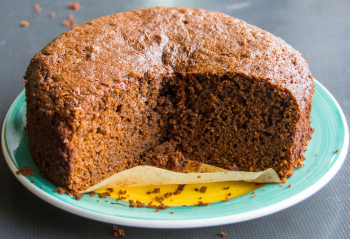
Guy Fawkes Night, celebrated on November 5, commemorates the failed Gunpowder Plot of 1605. Bonfires and fireworks are central to the event, and the food is traditionally simple and warming. Common dishes include baked potatoes, toffee apples, and parkin, a sticky gingerbread cake made with oatmeal and treacle. Sausages are often grilled over the bonfire. These hearty, comforting foods are enjoyed outdoors, reflecting the nature of the celebration, which revolves around fire and community gatherings.
Religious and Spiritual Occasions
Easter
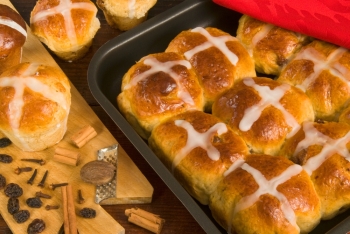
Easter in the UK is both a religious and family celebration. The Easter Sunday meal often features roast lamb with mint sauce served with potatoes and spring vegetables such as asparagus and carrots. Hot cross buns, spiced buns marked with a cross, are traditionally eaten on Good Friday. Chocolate Easter eggs are widely exchanged, especially among children. Easter foods in the UK symbolize rebirth and renewal, with meals centered around springtime ingredients and religious significance.
Pancake Day (Shrove Tuesday)
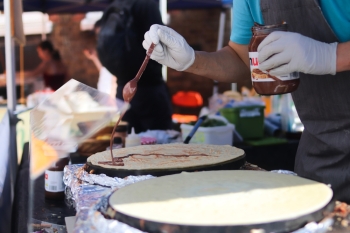
Shrove Tuesday, or Pancake Day, is celebrated before the start of Lent and involves making and eating pancakes. These pancakes are thin and more like crepes, traditionally served with lemon juice and sugar, though modern variations include toppings such as Nutella, fruit, or syrup. The tradition of eating pancakes comes from the need to use up rich ingredients, including eggs and butter, before the fasting period of Lent. The day is marked by pancake races and family gatherings, where pancakes are flipped and enjoyed in abundance.
Life Milestones and Personal Celebrations
Weddings
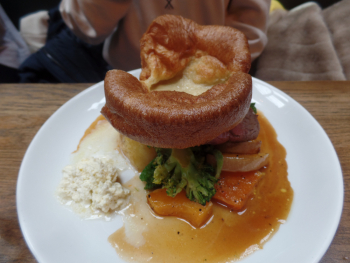
British weddings are elaborate affairs, with food playing a key role in the celebration. The wedding breakfast, which is the main meal, often includes classic British dishes such as roast beef with Yorkshire pudding, or more modern options such as seafood or chicken. The wedding cake is typically a multi-tiered fruitcake covered in marzipan and fondant icing, though sponge cakes are also becoming popular. The cutting of the cake is a symbolic part of the ceremony. Wedding feasts reflect celebration, abundance, and tradition, with meals designed to unite families and friends.
Birthdays
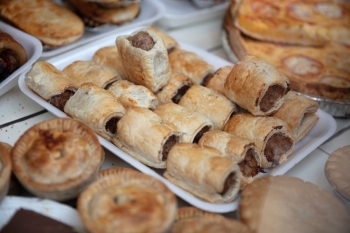
Birthdays in the UK are often celebrated with tea parties or larger gatherings. A classic birthday cake, typically a sponge cake with layers of jam and buttercream, is a central feature of the celebration. For children’s parties, foods such as sausage rolls, sandwiches, and crisps are popular, along with party snacks including jelly and ice cream. Birthday meals emphasize fun and indulgence, with the cake serving as the highlight of the event, where candles are blown out to make wishes.
Cultural and Regional Festivals
Burns Night
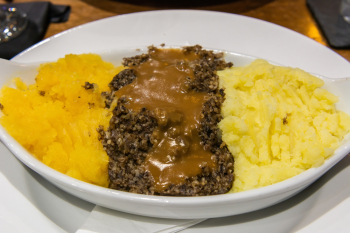
Burns Night, celebrated on January 25, honors the Scottish poet Robert Burns. The centerpiece of the meal is haggis, a savory pudding made from sheep’s offal, oatmeal, and spices. It is traditionally served with neeps and tatties (turnips and potatoes). Scottish whisky is the drink of choice, often used to toast the haggis in a formal address. Burns Night reflects Scottish pride and cultural heritage, with food playing a key role in honoring tradition and the country’s national poet.
St. George’s Day
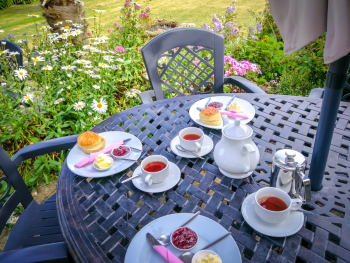
St. George’s Day, celebrated on April 23, honors the patron saint of England. Although it’s not widely observed, traditional English foods are often enjoyed on this day. A roast dinner featuring beef, lamb, or chicken with Yorkshire puddings, gravy, and vegetables is common. Afternoon tea with finger sandwiches, scones, and cakes is another way to celebrate. The food on St. George’s Day reflects English culinary heritage, with meals that celebrate the country’s national identity and history.
Notting Hill Carnival
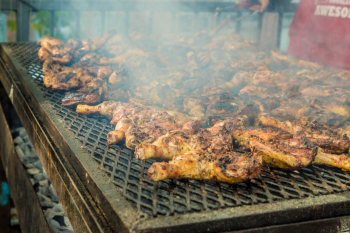
The Notting Hill Carnival, taking place annually in August, celebrates Caribbean culture in the UK, particularly in London. Street food plays a central role, with stalls offering traditional Caribbean dishes such as jerk chicken, curried goat, and plantains. Rice and peas as well as patties (savory pastries filled with meat or vegetables) also are popular. The food reflects the multicultural nature of the carnival, blending British and Caribbean influences in a celebration of diversity and community.
Glastonbury Festival
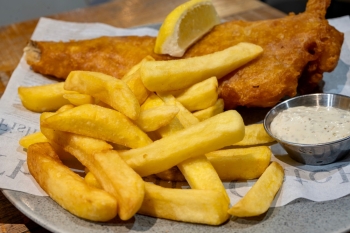
Glastonbury, one of the UK’s largest music festivals, takes place annually in June. While it’s primarily known for its music, food plays an important role in the festival experience. Festival-goers enjoy a wide range of street food, from classic British dishes such as fish and chips to international cuisine, including falafel, curries, and burritos. Vegan and vegetarian options also are widely available. The food at Glastonbury highlights the festival’s focus on sustainability and diversity, with meals that fuel the lively, communal atmosphere.
Copyright © 1993—2024 World Trade Press. All rights reserved.

 United Kingdom
United Kingdom